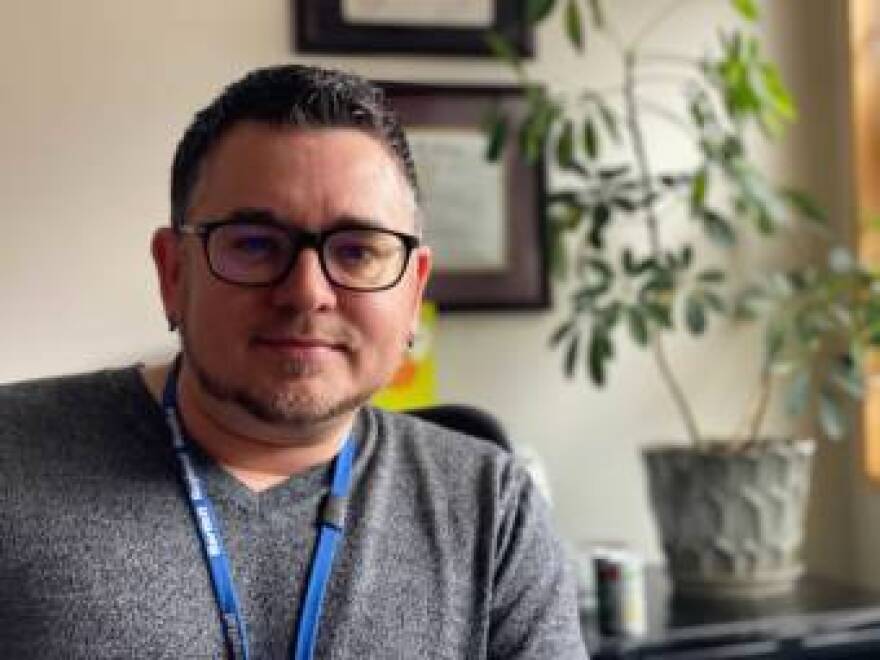In 2020, Bartlett Regional Hospital in Juneau braced for a surge of COVID-19 patients.
It got a surge of mental health crises instead.
Bartlett behavioral health staff tie the spike in patients to spring break of last year. Students left the classroom for vacation and returned to a whole new reality. COVID-19 cases were increasing statewide and remote learning suddenly replaced school day routines.
“We started to see kids and families and adults coming in struggling with the immediate changes that we, as a community, took on,” said Bradley Grigg, who leads the behavioral health arm of the regional hospital.
He said those social restrictions caused spikes in anxiety, depression, substance use and self-harm — for students, parents and just about everyone experiencing the disruption of the pandemic.
Since last March, Grigg said, patient visits have doubled to 1,000 a month. And of those, more than 100 come to the emergency room, he said. It works out to four people in crisis in Juneau per day.
“I hope that no one deals with what we’re seeing,” he said. “It’s a pandemic all within itself. And it’s creating more havoc. Yes, COVID has created inconveniences for us. This is creating havoc.”
Juneau isn’t an outlier.
Kristina Weltzin is a mental health clinician for the Alaska Department of Health and Social Services.
“In all of our communities," she said, "the information that we’re getting is that absolutely, you know, behavioral health issues have increased dramatically."
In a state survey, most adults reported their mental health has worsened over the last year. More than half of parents reported their child was more anxious or sad than usual.
Grigg has hired about 35 mental health staff in the last year to keep up with demand. He now manages a staff of 150 people. Grigg said while CARES money helped fund new positions, they'll be permanent roles reflecting a new normal in Bartlett’s Behavioral Health program.
“When people are in crisis, even if it’s just outpatient, we don’t want to waitlist them,” he said.
Even with increased staff, there’s still a waitlist for non-emergency patients.
The hospital started a Crisis Intervention Services team this spring, which provides follow-up support to patients who've been discharged from the emergency department. The team is available for in-home visits seven days a week, working with patients until they’re stable.
Grigg got emotional when he talked about the toll he's seen shouldered by kids.
Prior to COVID-19, children were only about a third of the patients in the behavioral health department, he said. Now, kids make up the majority of the hospital’s behavioral health patients and a quarter of the department’s emergency room traffic.
Hospital-recorded suicide attempts have quadrupled among teenagers. For children age 13 and younger, the hospital recorded one suicide attempt in 2019. In 2020, there were seven.
“The devastation that we’re seeing with kids, with families, when they can’t survive this because their anxiety or their depression or their substance use is so out of control … It’s an effect that, unless you’re seeing it every day, you don’t know how infiltrated it has been in our community,” Grigg said.
While public restrictions have now eased and more than 70% of Juneau’s eligible population has had its first dose of a COVID-19 vaccine, Grigg said the patient load hasn’t decreased. It’s just leveled off.
“It’s unrelenting,” he said. “It’s not stopping.”
If you or someone you know is struggling with thoughts of suicide or in need of care, help is available:
- Alaska’s Careline: 1-877-266-4357 (HELP)
- AK First Responders Relief Line: 844-985-8275
- JAMHI Health and Wellness: 907-463-3303
- Bartlett Regional Hospital: 907-796-8900
How has the pandemic influenced your mental health? Email your story with KTOO's Claire Stremple at Claire@ktoo.org. All correspondence will be kept confidential unless there is explicit permission to publish.


